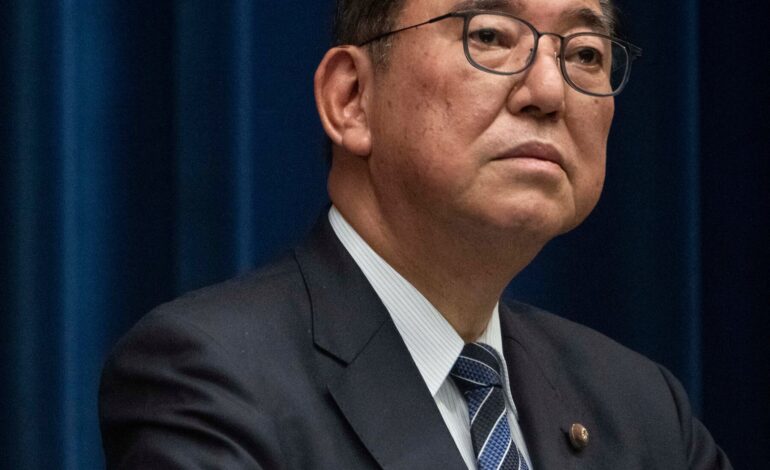Japan’s Prime Minister Shigeru Ishiba Announces Resignation Amid Crisis

Japanese Prime Minister Shigeru Ishiba has announced his decision to resign amid escalating political tensions and economic challenges. His resignation comes as his party faces significant internal strife, driven by a rising right-wing political movement and deteriorating trade relations with the United States.
The announcement, made on March 15, 2024, signals a critical juncture for Japan’s political landscape. Ishiba’s Liberal Democratic Party (LDP) is struggling with divisions that could threaten its stability. This turmoil is compounded by a weakened economy, marked by sluggish growth and increasing public dissatisfaction.
Economic concerns have been a persistent issue in Japan, with recent data showing that the country’s GDP has contracted by 1.2% in the last quarter, a stark contrast to government forecasts. Inflation has also surged, reaching 4.5%, which has strained household budgets and diminished consumer confidence.
As Ishiba’s party grapples with these challenges, internal factions are becoming more vocal about their dissatisfaction. The rise of right-wing sentiments, coupled with calls for a more assertive foreign policy, has led to debates within the LDP about its future direction. This shift could potentially drive moderate members away, further fracturing the party.
Ishiba’s resignation also comes at a time of heightened tension in trade relations with the United States. Ongoing negotiations over tariffs and market access have not yielded positive results, exacerbating the political climate. Analysts suggest that the Prime Minister’s departure may lead to a shift in Japan’s approach to trade, particularly as the next leader may prioritize different strategies to enhance international relations.
Political analysts are closely monitoring the situation, as the LDP is set to hold elections for a new leader in the coming weeks. The outcome of these elections will likely have significant implications for Japan’s policy direction and its response to both domestic and international challenges.
In his statement, Ishiba emphasized the need for unity within the party, indicating that his resignation is intended to facilitate a smoother transition for new leadership. He expressed hope that his successor would be able to address the pressing issues facing the nation more effectively.
As Japan prepares for this political shift, citizens are left wondering what changes might come in both domestic policies and international relations. The next Prime Minister will face the formidable task of navigating a divided party, a struggling economy, and complex global dynamics, particularly with the United States.
In conclusion, Ishiba’s resignation marks a pivotal moment for Japan. The forthcoming leadership election will not only shape the future of the LDP but also have lasting impacts on the nation’s economic recovery and diplomatic strategies.






